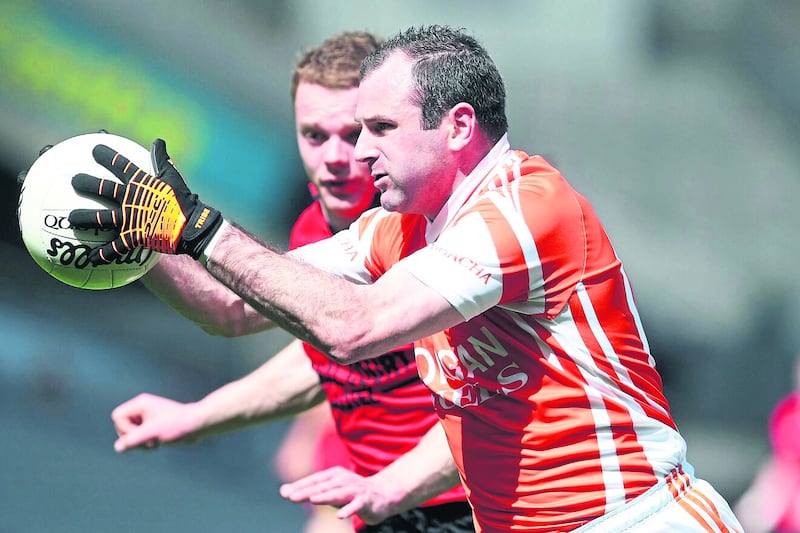A couple of weeks ago, I was trawling through YouTube and a clip came up of the 2002 All-Ireland final. I’m not one for ever sitting down to watch old games.
Believe it or not, up to this point, I had actually never sat down to watch the All-Ireland final, as everywhere we went afterwards, it was being shown so we were catching glimpses of it here and there.
On this occasion, myself and my wife decided to watch the first half. I actually couldn’t believe what I was watching. Both ourselves and Kerry played a style of football which focused heavily on kicking the ball. Not every pass was accurately executed, but the vast majority of them were. We played in a way that we weren’t afraid to make the odd mistake. Even on the biggest of occasions, we stuck to what we were good at which was making the ball work for us.
I was pleasantly surprised by the ratio of kick-passes compared to hand passes. At a rough guess, I would say for every five balls kicked, there was maybe one hand pass. The hand pass is a skill in our game that has to be appreciated, but the modern way of playing has meant that it is more frequently used than what a kick pass is and I don’t particularly like that.
Both teams also had a philosophy to move the ball forward as often as possible so for players like Ronan Clarke, Diarmaid Marsden or myself, this made it a lot easier to know when to make our move.
We knew immediately that when Kieran McGeeney, Paul McGrane, John Toal, Andy McCann, Aidan O’Rourke or John McEntee got the ball, their intention was to get it into the full-forward line as fast and as effectively as they possibly could.
Playing in there, we knew it wasn’t always going to be the perfect delivery, but we were always prepared to fight for the 50/50 balls and that is what made us as a team.
We had that desire to outfight our opponents most of the time.
McGrane always had a saying - “Get the ball into the mixer”. The mixer was where me and Clarkie spent most of our time, which was the score zone. If we didn’t keep our shape and have a presence in there, then how were we going to score? If the ball wasn’t coming into the mixer, then we asked questions of the guys further out the field, but in truth, we didn’t have to query them too often.
The game now is different. Strike that - it’s a lot different. It’s more sideways and backways than it is forwards and there is no doubting that the players are more athletic, are stronger, and still have the same skillset. They play a game that is based around taking less risks and as a spectacle, football has suffered from it.
When you look at some of the best games in recent years like Armagh v Galway last year or Tyrone v Kerry in the All-Ireland semi-final in 2021, they were prepared to go at each other and take risks. Both games had plenty of mistakes but they were outweighed by the mindset that the teams had going into the games, which was to attack their opponent at every opportunity they could.
As supporters, this provided us with so much entertainment and pride that our game can be played this way.
Maybe another aspect of why the game has changed is the over-analysing of opponents, which can create a fear factor in itself. We analysed our opponents too, but the outcome was always that we had to stifle their main threats, but we never lost sight of how we had to play also.
Our way of the long diagonal ball was simple and very effective, and extremely difficult to defend against because it kept coming in. Teams seem more concerned with how opponents play and set up, than focusing more on their own strengths and that creates that fear factor.
Technology plays a significant role here because access to plays is right in front of managers and coaches at the touch of a screen and they can make decisions based on what they see happening on repeat.
Analysing your team’s good plays is more important than focusing your efforts on your opponents. As a player, I used to watch video clips compiled for me by our team psychologists. These were of points or goals I scored and it showed me exactly what it was I was in the team to do. It made me feel good about myself before a game and was a reminder that my duty was to stay close to goal or my game would be ineffective.







